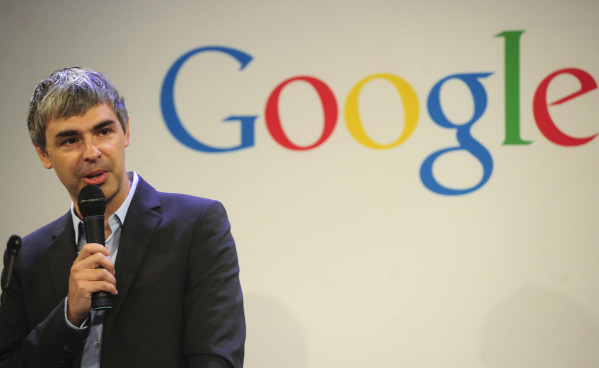‘Larry Page’s obsessions became Google’s business’

THREE years ago, Charles Chase, an engineer who manages Lockheed Martin’s nuclear fusion programme, was sitting on a white leather couch at Google’s Solve for X conference when a man he had never met knelt down to talk to him. They spent 20 minutes discussing how much time, money and technology separated humanity from a sustainable fusion reaction — that is, how to produce clean energy by mimicking the sun’s power — before Chase thought to ask the man his name.
“I’m Larry Page,” the man said. He realised he had been talking to Google’s billionaire co-founder and chief executive. “He didn’t have any sort of pretension like he shouldn’t be talking to me or ‘Don’t you know who you’re talking to?” Chase said. “We just talked.”
Larry Page is not a typical chief executive, and in many of the most visible ways, he is not a CEO at all. Corporate leaders tend to spend a good deal of time talking at investor conferences or introducing new products on auditorium stages. Page, who is 42, has not been on an earnings call since 2013, and the best way to find him at Google I/O — an annual gathering where the company unveils new products — is to ignore the main stage and follow the scrum of fans and autograph seekers who mob him in the moments he steps outside closed doors.
But just because he has faded from public view does not mean he is a recluse. He is a regular at robotics conferences and intellectual gatherings like TED. Scientists say he is a good bet to attend Google’s various academic gatherings, like Solve for X and Sci Foo Camp, where he can be found having casual conversations about technology or giving advice to entrepreneurs.
Page is hardly the first Silicon Valley chief with a case of intellectual wanderlust, but unlike most of his peers, he has invested far beyond his company’s core business and in many ways has made it a reflection of his personal fascinations.
He intends to push even further with Alphabet, a holding company that separates Google’s various cash-rich advertising businesses from the list of speculative projects like self-driving cars that capture the imagination but do not make much money. Alphabet companies and investments span disciplines from biotechnology to energy generation to space travel to artificial intelligence to urban planning.
Investors will get a good look at the scope of those ambitions on February 1, when the company, in its fourth-quarter earnings report, will disclose for the first time the costs and income of the collection of projects outside of Google’s core business.
As chief executive of Alphabet, Page is tasked with figuring how to spin Google’s billions in advertising profits into new companies and industries. When he announced the reorganisation last summer, he said that he and Sergey Brin, Google’s other founder, would do this by finding new people and technologies to invest in while at the same time slimming down Google — now called Google Inc, a subsidiary of Alphabet — so their leaders would have more autonomy.
“In general, our model is to have a strong CEO who runs each business, with Sergey and me in service to them as needed,” Page wrote in a letter to investors. He said that he and Brin would be responsible for picking those chief executives, monitoring their progress and determining their pay.
Google’s day-to-day management was left to Sundar Pichai, the company’s new chief executive. His job will not be about preventing cancer or launching rocket ships, but to keep Google’s advertising machine humming, to keep innovating in emerging areas like machine learning and virtual reality — all while steering the company through a thicket of regulatory troubles that could drag on for years.
Page’s new role is part talent scout and part technology visionary. He still has to find the chief executives of many of the other Alphabet businesses.
And he has said on several occasions that he spends a good deal of time researching new technologies, focusing on what kind of financial or logistic hurdles stand in the way of them being invented or carried out.
His presence at technology events, while just a sliver of his time, is indicative of a giant idea-scouting mission that has in some sense been going on for years but is now Page’s main job.
In the investor letter, he put it this way, “Sergey and I are seriously in the business of starting new things.”
Leslie Dewan, a nuclear engineer who founded a company that is trying to generate cheap electricity from nuclear waste, also had a brief conversation with Page at the Solve for X conference. She said he questioned her on things like modular manufacturing and how to find the right employees.
“He doesn’t have a nuclear background, but he knew the right questions to ask,” said Dewan, chief executive of Transatomic Power. “‘Have you thought about approaching the manufacturing in this way?’ ‘Have you thought about the vertical integration of the company in this way?’ ‘Have you thought about training the work force this way?’ They weren’t nuclear physics questions, but they were extremely thoughtful ways to think about how we could structure the business.”
Dewan said Page even gave her an idea for a new market opportunity that she had not thought of. Asked to be more specific, she refused. The idea was too good to share.









0 Comments